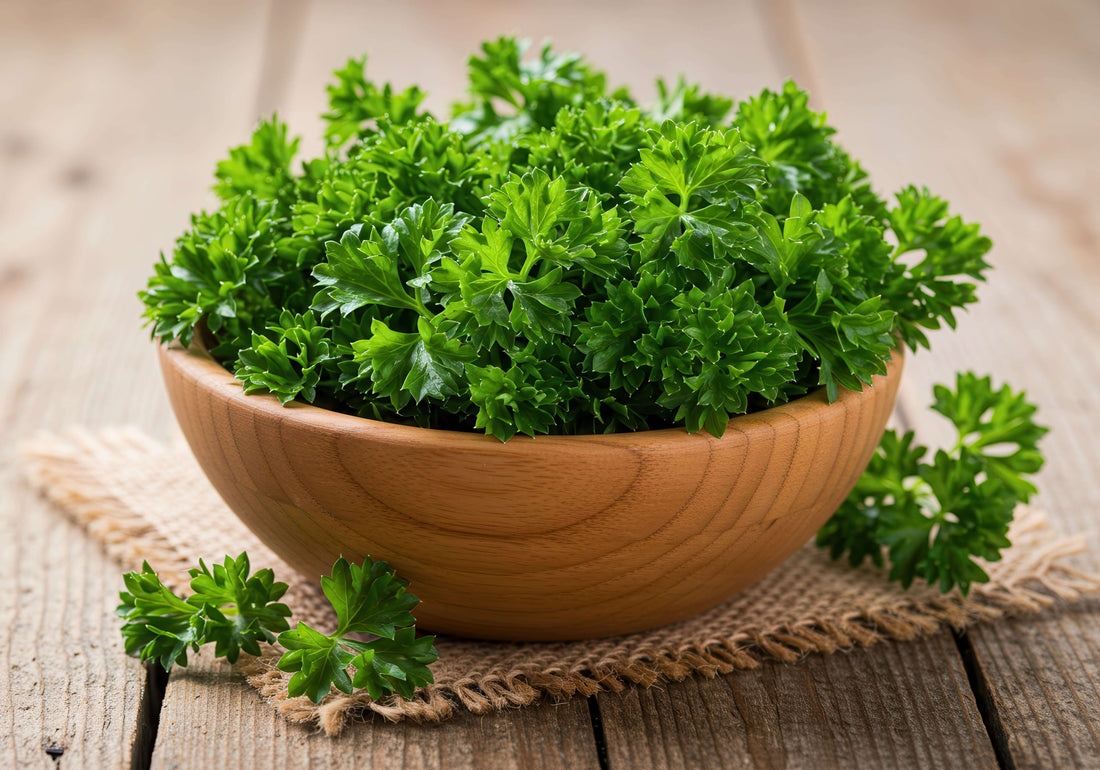
The Incredible Benefits of Parsley for Your Pet
While you might be most familiar with parsley as "that plant" on your plate of eggs at breakfast, parsley is in fact an herb that delivers fabulous health benefits for your pet!
Scientifically speaking, parsley is a species of Petroselinum in the family Apiaceae. It's native to the Mediterranean region and widely considered an herb, spice, and vegetable.
Is parsley good for cats and dogs?
Parsley isn't just good for your pet; it is a super-herb that is rich in a variety of important vitamins that can help support your pet's overall health. Parsley is a natural source of Vitamin A, Vitamin C, and Vitamin K.
- Vitamin A is important for the development of vision
- Vitamin C helps to provide immune support
- Vitamin K helps maintain a healthy blood clotting system and promotes liver health
Parsley is also rich in folic acids and antioxidants. It has anti-inflammatory properties that help promote good kidney health and urinary health.
Since it has antimicrobial properties, parsley can also help freshen your dog or cat's breath! This is why we see parsley included in products like dental treats!
See what we mean? Super-herb!
Is parsley safe for pets?
While curly-leaf parsley is good for your dog or cat in moderation, the ASPCA considers Spring Parsley and Italian Parsley to be toxic in large amounts. Parsley is high in fiber and a diuretic, meaning it helps the body flush out fluids and move foods through the digestive tract. If your pet has kidney problems, you might want to avoid parsley.
How much parsley should I give my pet?
As with any food or treat, moderation is key. As we previously mentioned, parsley is a diuretic, so make sure to give your pets raw parsley sparingly. If you don't want to sprinkle raw parsley on your pet's meals, you can find many treats, chews, and food that are made with parsley.
Want to see if parsley can help your dog’s breath? Check out our collection of Chew-A-Bulls® Dental Treats!


